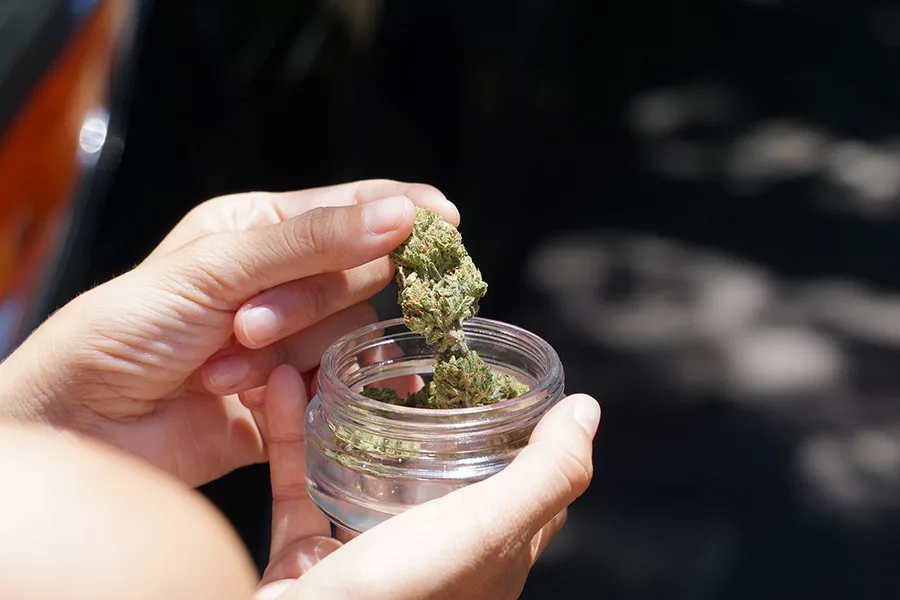
Home » Washington still relying on ‘stopgap’ tracking software for cannabis industry
Washington still relying on ‘stopgap’ tracking software for cannabis industry
New audit notes that an upgraded system may not be in place until 2031

The state Liquor and Cannabis Board does not expect to launch a better production-to-sale tracking system until 2031, which would be nearly 20 years after voters approved recreational marijuana sales.
Courtesy Elsa Olofsson from PixabayNovember 14, 2024
It’s been over a decade since Washington legalized recreational marijuana — but the state still isn’t able to reliably track cannabis from production through processing to retail sale.
That’s according to a recent performance audit from the Office of the Washington State Auditor, which highlights how the Liquor and Cannabis Board failed to implement a digital tracking system that it launched in 2018, instead implementing a “stopgap” system with “significant limitations.”
Full-service “seed-to-sale” tracking exists in other states, the auditor’s office said, and helps officials identify risks of illegal or unsafe practices. In Washington, that type of system has “yet to be fully realized,” despite 12 years of development, said Pat McCarthy, the state’s auditor.
“Today, Washington’s legal cannabis marketplace is an industry employing more than 100,000 people, and the opportunities for illegal trade at any point in the process remain real,” the auditor’s office said.
The Liquor and Cannabis Board does not expect to launch a better tracking system until 2031, which would be nearly 20 years after voters approved recreational marijuana sales.
Responding to the audit, the agency said it is vigilant about industry oversight, despite the shortcomings of its tracking software.
“Our concern is that readers of this audit report may incorrectly infer that the agency has not prioritized the traceability or regulatory functions that are enacted in law,” the board said.
“This could not be further than the truth,” the response continues. “More than ever, the agency prioritizes public safety and health in the cannabis industry.”
Washington’s 2018 system, LEAF, was supposed to be “sophisticated enough to highlight risk areas for further investigations by enforcement officers.”
But the project, which was overseen by three different sponsors and three different deputy directors in three years, faced serious glitches almost immediately after it launched, preventing businesses from being able to make or report sales.
By 2021, the board had scrapped LEAF and repurposed an existing system, which it dubbed the Cannabis Central Reporting System. The system was designed as a backup licensee database to be used until the board had a new system in place, which agency managers at first believed would be “perhaps just one year,” the audit said. It’s still the system in place today.
The current system can’t provide enforcement officers with real-time tracking information and errors, like misplaced decimals in reported sales prices, are common. The system reported annual sales of $7.7 billion in 2022, compared to the Department of Revenue’s estimate of $1.3 billion in the same year.
The board relies heavily on cannabis businesses to report accurate and complete information — but once businesses upload their data, they can’t easily access or correct it. Products also don’t have single identification numbers, which makes it difficult to track them for quick product recalls.
The audit even found records with dates from before cannabis was legalized, including almost 60,000 products with reported dates ranging from 1899 to 2003, and about 600,000 reported dates that were in the future.
In the Liquor and Cannabis Board’s response to the audit, it acknowledged that the Cannabis Central Reporting System was not a “long-term solution” but said it was continuing to update the system “to meet the needs of the agency” and began working on developing a new tracking system in November 2023.
The auditor’s office noted that “today’s board leaders inherited historical problems in project management, following significant turnover in multiple essential roles” and acknowledged the board is “focused on replacing other aging information technology systems.”
The Liquor and Cannabis Board’s response also argued that “there is more to regulation of the cannabis industry than traceability” and said “other independent studies and research” show that the board, the industry and public health and prevention groups have created a “safe system for adult use of recreational cannabis.”
This story is republished from the Washington State Standard, a nonprofit, nonpartisan news outlet that provides original reporting, analysis and commentary on Washington state government and politics.
Latest News
Related Articles
Related Products





